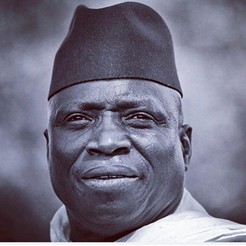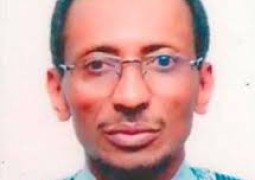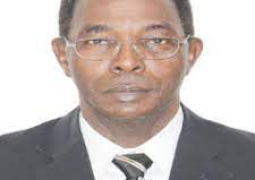
The recent messages from former dictator Yahya Jammeh, hinting at his return to The Gambia, have sent shockwaves throughout the country.
For many Gambians, Jammeh's rule was a period of brutal repression, corruption, and human rights abuses.
His departure in 2017 was seen as a new dawn for the country, but his continued meddling in Gambian politics threatens to destabilize the fragile peace.
- A History Of Repression
Jammeh's 22-year rule was marked by widespread human rights abuses, including arbitrary arrests, torture, and extrajudicial killings.
His regime was notorious for its brutality, and many Gambians lived in fear of his wrath.
The Truth, Reconciliation and Reparations Commission (TRRC) report detailed the atrocities committed during his rule, and it is imperative that those responsible are held accountable.
- A Threat To Democracy
Jammeh's messages, spread through social media, are designed to sow discord and instill fear in the minds of Gambians.
His claims of returning to The Gambia are a thinly veiled attempt to regain power and undermine the country's democratic progress.
The Gambian government must take these threats seriously and take concrete steps to prevent Jammeh's return, failing which if ever he returns to be prosecuted for his alleged crimes.
- A Call To Action
The Gambian government must prioritize the safety and security of its citizens.
To do this, it should:
- Pass Legislation To Lift Presidential Immunity:
This would allow for Jammeh to be held accountable for his crimes and face trial.
- Take Diplomatic Action:
The government should work with international partners to pressure Equatorial Guinea to hand over Jammeh or reign in his subversive activities.
- Promote National Unity:
The government should prioritize national unity and reconciliation, rather than allowing Jammeh's divisive rhetoric to further polarize the country, in accordance with international law governing the condition of asylum or refugee status.
- Conclusion
Yahya Jammeh's threats to return to The Gambia are a stark reminder of our country's fragile democracy.
To ensure a brighter future, Gambians must wake up to the reality of Jammeh's intentions.
The government must therefore take concrete steps to deal with his possible return and prioritize accountability, transparency, and national unity.
Only then can The Gambia truly move forward and build a democratic society that values human rights and the rule of law.
- A Call To Vigilance
The Gambian people must also remain vigilant and demand that their government takes action to protect their democracy.
This includes holding accountable those responsible for past human rights abuses and ensuring that the country's institutions are strong enough to withstand attempts to undermine them.
- Lessons From The Past
The experience of Yahya Jammeh's rule serves as a lesson to all Gambians and indeed to the international community.
It highlights the importance of promoting democracy, human rights, and the rule of law.
It also underscores the need for strong institutions and a free press to hold those in power accountable.
- A Brighter Future
As The Gambia looks to the future, it is essential that the country prioritizes national unity and reconciliation.
This can be achieved through dialogue, accountability, and a commitment to democratic principles.
By working together, Gambians can build a society that values human rights, justice, and the rule of law.
- The Way Forward
To ensure a brighter future, the Gambian government should:
- Prioritize Accountability:
Hold those responsible for human rights abuses accountable and provide reparations to victims.
- Strengthen Institutions:
Ensure that institutions such as the judiciary and the electoral commission are independent and effective.
- Promote National Unity:
Encourage dialogue and reconciliation to build a united and inclusive society.
- Foster A Culture Of Democracy:
Promote democratic values and practices, including freedom of speech and assembly.
By taking these steps, The Gambia can build a brighter future for its citizens and ensure that the mistakes of the past are not repeated from their country.
Let the reader, please, understand!
Hassan Gibril



